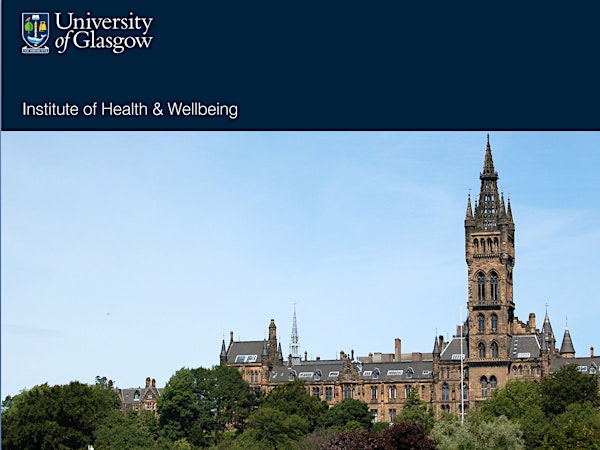
Perfecting Prevention: Pills, Policies, Politics or Partnerships with PLCs?
Date and time
Location
Wolfson Medical School Building, Gannochy Seminar room
University Avenue G12 8QQ United KingdomDescription
We are pleased to invite you to:
The Institute of Health and Wellbeing Maurice Bloch Annual Lecture Series 2015/16
Title: Perfecting Prevention: Pills, Policies or Partnerships with PLC's?
Presenter: Professor Simon Capewell
Date: Monday 25 January 2016
Time: 12 noon tea and coffee will be served 30mins beforehand
Venue: Gannochy Seminar Room, Wolfson Medical School Building
Chair: Professor Jill Pell
Abstract:
Non-Communicable Diseases (NCDs) account for two thirds of the 60 million global deaths each year. Over 1/3 of all NCD deaths are caused by Cardiovascular Disease (CVD -mainly heart disease & strokes. The NCD BURDEN of death and disability is thus immense. Yet over 80% of premature CVD deaths are avoidable.
CVD and NCDs have only FOUR major risk factors. Poor diet makes a bigger contribution than the combined effects of tobacco, alcohol & inactivity
So the science is relatively easy. Yet Health Planners still face a bewildering choice of prevention strategies: Pills, Policies, Politics or Partnerships with industry?
What does the effectiveness & cost-effectiveness evidence suggest??
Population-wide prevention policies are powerful, rapid, equitable and cost-saving.
Effective policies promote healthier diets and physical activity, control tobacco, and reduce alcohol intake. They have prevented far more CVD deaths than all medical and surgical interventions combined. Much the same is true for the prevention of common cancers and other NCDs.
These “upstream” population-wide policies are not just cost-effective, they are often cost saving with impressive returns on investment ranging from 5:1 up to 100:1
By contrast, “downstream “ interventions (targeting individuals for advice or preventive pills) are less effective, more expensive and worsen the inequities between rich and poor.
Prevention politics are challenging. Prevention policies therefore tend to reflect political compromises. Scientific evidence constantly risks being outvoted by powerful vested interests manipulating media and public opinion. The current English Government advocates policy Partnerships with industry, including alcohol and food Responsibility Deals with multi-national companies (Pepsi, Unilever, Diageo etc). Companies have only one statutory duty - to maximise profit. So the conflicts of interests are striking, and have been likened to “Putting Dracula in charge of the Blood bank”. Yet the scientific evidence confirms common-sense, evaluation of these voluntary agreements with commerce show them to be weak or ineffective.
Is it a hopeless fight? No! Public health can learn from a long tradition of successes, including safe drinking water, sanitation, clean air, seatbelts, immunisation and smoke-free buildings and spaces. These public health triumphs demonstrate remarkably similar paths to eventual success: commencing with the science, overcoming the vested interests and then implementing effective interventions (comprehensive strategies usually including regulation an taxation) .
Our first dilemma as health professionals and citizens is therefore what to do. Silence implies approval of the inequitable status quo, and is thus difficult to justify. So what should we choose: apathy, advocacy or activism??
Biography
I qualified from Newcastle University and subsequently trained in clinical medicine (general, respiratory and cardiovascular) in Cardiff, Oxford and then in Edinburgh where I discovered Public Health. I moved to Glasgow University before being appointed as the first Professor of Clinical Epidemiology at the University of Liverpool in 1999.
- I am valued as a public health “generalist”, with expertise that spans the clinical, health service, population and policy aspects of health and disease, notably around preventing non-communicable diseases.
- I contribute to policy development and service work locally, nationally and internationally, including recently chairing, vice-chairing or energetically supporting committees at the Academy of Medical Royal Colleges, the British Heart Foundation, the European Society of Cardiology, Heart of Mersey, the UK Faculty of Public Health, the UK Health Forum, NICE, and the World Health Organisation